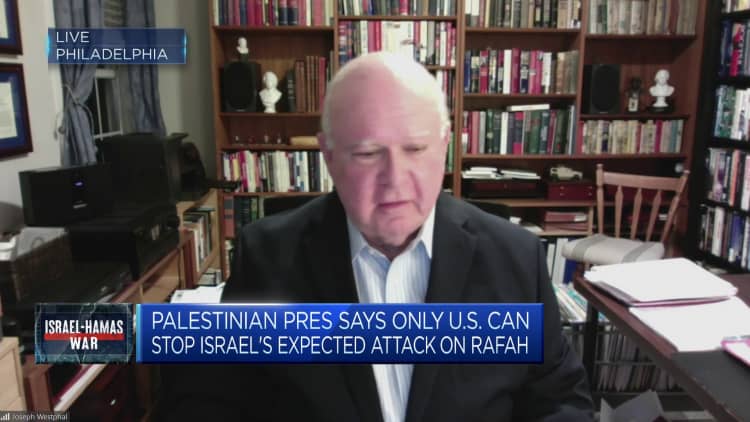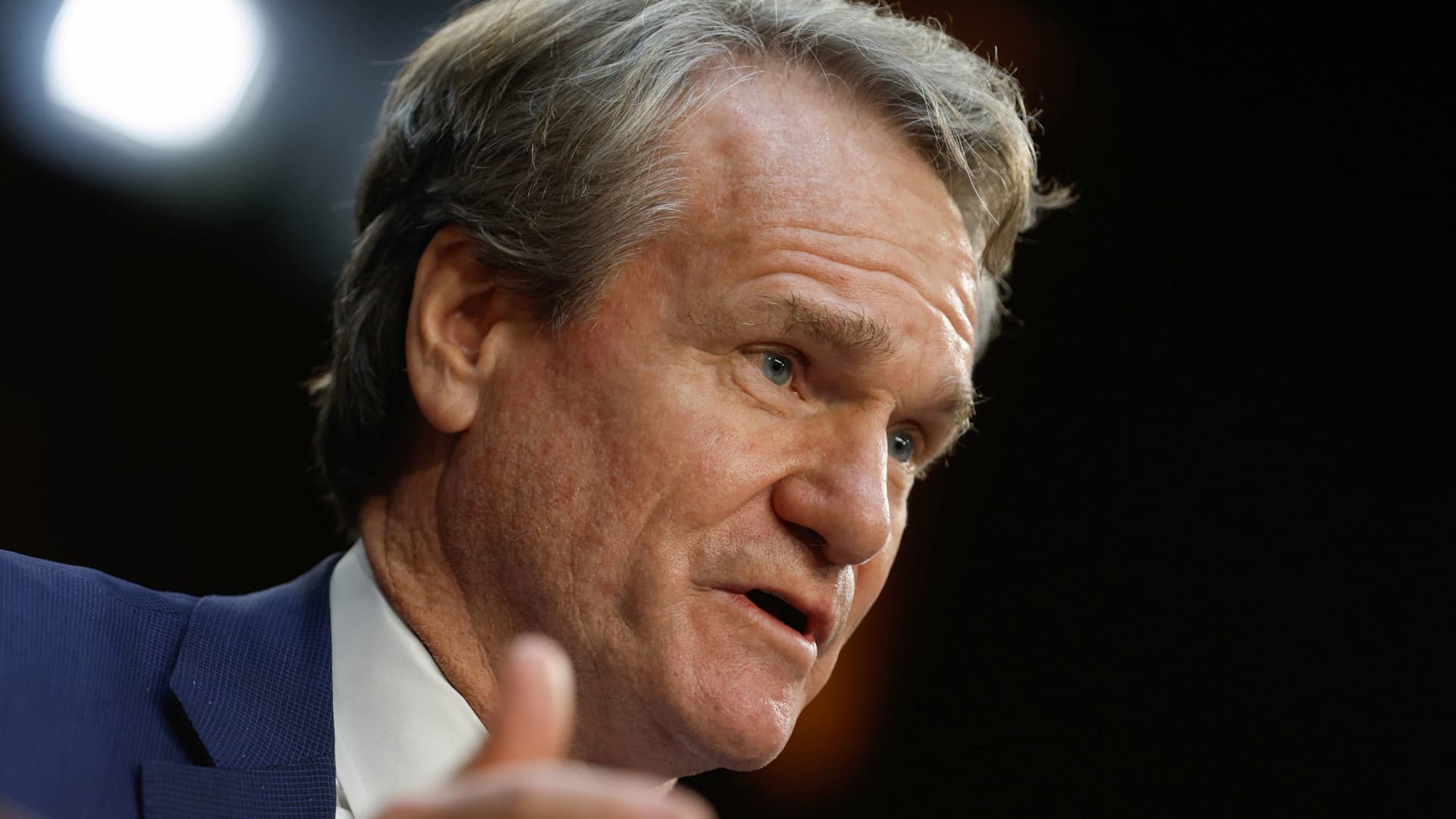The International Court of Justice is displayed on a smartphone with the flag of Israel in the background in Brussels, Belgium, May 20, 2024.
Photo only | Photo only | Getty Images
On Friday, the United Nations’ top court, the International Court of Justice, ordered Israel to halt its military offensive in Rafah, southern Gaza, citing concerns about the safety of Palestinian civilians.
“Israel must immediately stop its military offensive and any other action in Rafah Governorate that could impose living conditions on the Palestinian group in Gaza that could lead to their physical destruction, in whole or in part,” said ICJ President Nawaf Salam.
The court noted that conditions in Rafah had continued to deteriorate since the International Court of Justice’s last ruling in March. The court also stated that the interim measures ordered by the ICJ, also known as the World Court, no longer covered the current circumstances.
The court also found that the evacuation and other measures taken by Israel in Rafah were inadequate.
“Israel must take effective measures to ensure unhindered access to the Gaza Strip by any commission of inquiry, fact-finding mission or other investigative body mandated by order of the United Nations to investigate allegations of genocide,” the ruling said.
Israel defended itself after the court order.
“Israel acts on the basis of its right to defend its territory and its citizens, in accordance with its moral values and in accordance with international law, including international humanitarian law,” said a joint statement from the head of Israel’s National Security Council and the Spokesperson for the Israeli Foreign Ministry.
“Israel has not carried out and will not carry out any military actions in the Rafah region that could impose living conditions on the Palestinian civilian population in Gaza that could lead to their physical destruction, in whole or in part,” the statement added, emphasizing that Israel “continues to “will continue its efforts to provide humanitarian assistance and will act in full accordance with the law to reduce as much as possible the harm inflicted on the civilian population in Gaza.”
“Those who demand that the State of Israel end the war are demanding that it decree itself to cease to exist. We will not agree to this,” Israel’s Finance Minister Bezalel Smotrich said in a Google-translated update on the social media platform X. “If we lay down our weapons, the enemy will reach the bedsides of our children and women across the country.”
Earlier this month, Israel pressed ahead with its military operation in Rafah, where more than a million displaced Palestinians have sought refuge.
South Africa asked the International Court of Justice to rule on the Rafah offensive. This is part of a broader case launched by the African country in December, which asked the court for an opinion on potential genocide risks arising from Israel’s broader military campaign in the Gaza Strip. The World Court has so far said Israel must take steps to prevent genocide against civilians trapped in the besieged enclave, but has failed to order a ceasefire.
Israel maintains that its goals in the Gaza Strip are not to attack civilians but to eliminate the Palestinian militant group Hamas, which officials say claimed over 1,200 lives in the Oct. 7 terror attack in Israel. The ensuing war between Israel and Hamas has killed more than 35,000 people in Gaza, according to Palestinian health authorities there.
Hamas welcomed the World Court’s ruling and called on the United Nations to pressure Israel to comply with the decision.
“We expected the International Court of Justice to issue a decision to stop the aggression and genocide against our people throughout the Gaza Strip,” the Palestinian militant group said in a Google-translated statement. “And not just in Rafah governorate, what is happening in Jabalia and other Gaza governorates is no less criminal and dangerous than what is happening in Rafah.”
The Palestinian Authority, which controlled the Gaza Strip before Hamas’s full takeover, also welcomed the ICJ’s decision and said it represented an international consensus to end the war in the enclave, Palestinian presidential spokesman Nabil Abu said Rudeineh, told Reuters.

The ICJ issues judgments that are final and without appeal. However, the court cannot directly enforce these judgments. Still, his comments represent serious reputational damage and risk deepening Israel’s international isolation as concerns grow abroad about the proportionality of its response to the Gaza conflict.
Developments in Rafah have heightened tensions between Israel and close ally Washington. Israeli Prime Minister Benjamin Netanyahu acknowledged a “disagreement” with the US over the merits of the offensive but insisted on the importance of the offensive to national security.
“But we have to do what we have to do,” Netanyahu said in an interview with CNBC’s Sara Eisen last week. “Sometimes you have to… you just have to do what is necessary to ensure your survival and your future. We cannot continue in the future by letting Hamas retake Gaza.”
The World Court ruling is the third diplomatic blow to Israel this week.
On Monday, International Court of Justice prosecutor Karim Khan requested arrest warrants against Netanyahu and Israeli Defense Minister Yoav Gallant in connection with alleged crimes committed during Israel’s campaign in the wider Gaza Strip.
In the same file, the prosecutor requested arrest warrants against Yahya Sinwar, the Hamas leader; Ismail Haniyeh, the head of the group’s political office; and Mohammed Diab Ibrahim al-Masri, the commander in chief of Hamas’s military wing, the Al-Qassam Brigade. The three are wanted in connection with alleged crimes committed during Hamas’ Oct. 7 terror attack against Israel, including murder, hostage-taking and sexual abuse. Both Israel and Hamas have criticized the International Criminal Court’s request for arrest warrants, which is still pending review.
Later in the week, Norway, Ireland and Spain said they would recognize an independent Palestinian state, according to the prime ministers of the three countries.
Source link
2024-05-24 17:32:34
www.cnbc.com














